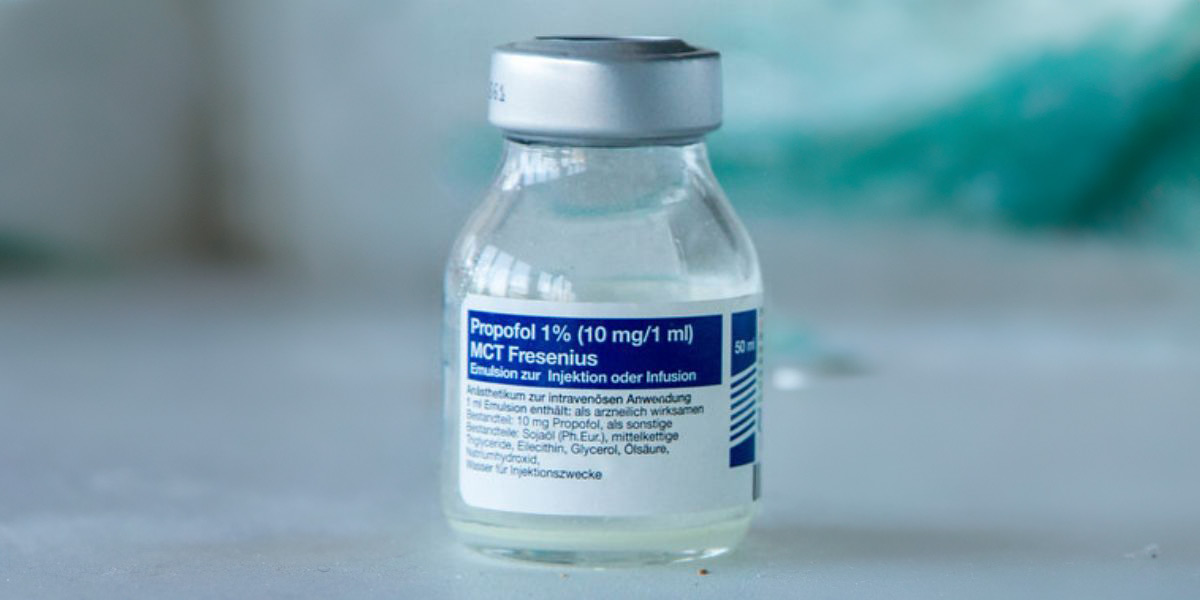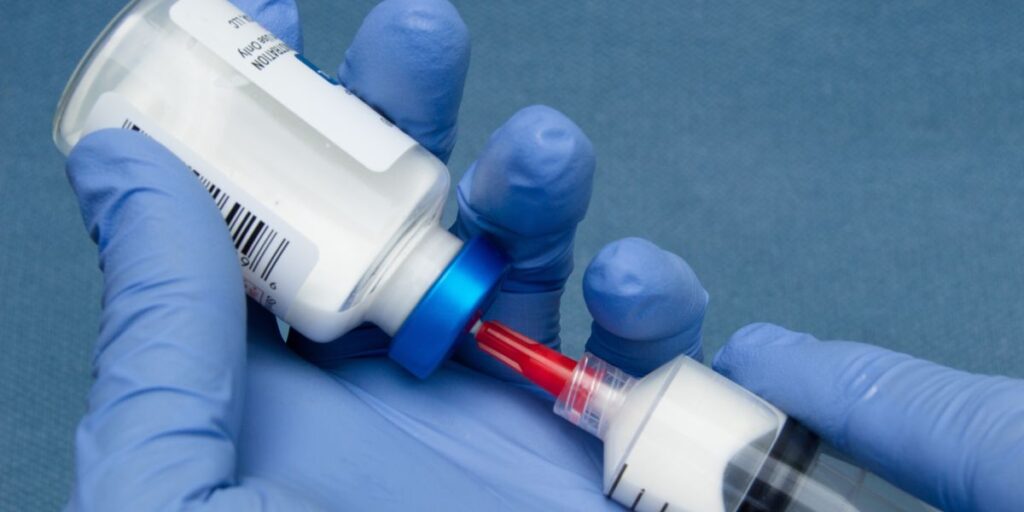Propofol Abuse and Addiction


Propofol is a widely used anesthetic drug known for its rapid and short-lived onset of effects. While it’s essential in surgical and critical care medical settings, propofol has gained popularity because of its misuse, particularly in the medical community. Its abuse presents severe health risks, including dependency, addiction, respiratory failure, and death.
What Is Propofol?
Propofol is a powerful intravenous sedative-hypnotic agent used primarily for inducing and maintaining anesthesia during surgery and other medical procedures. This drug is known for working quickly and lasting a short time. It helps patients feel calm and recover fast.
Propofol is very effective and widely used in operating rooms and intensive care units (ICUs). It is often used for short-term sedation in critical care settings. However, its strong effects have also made it a target for misuse and abuse. This is especially true among healthcare professionals who have direct access to the drug.
As a controlled substance, propofol poses significant risks when used outside its intended medical context. It can result in dangerous side effects, dependency, and, in extreme cases, death.
The misuse of propofol became a public concern after the famous death of pop star Michael Jackson. This event showed the dangers of this drug when it is not given in a safe medical setting.
Propofol misuse is not just a problem for celebrities. Medical professionals, anesthetists, and healthcare workers are also at risk. They have easy access to the drug, which can lead to addiction.
What Is Propofol Used For?
Propofol is most commonly used to induce general anesthesia for surgeries or other medical procedures. Its ability to quickly sedate patients makes it great for short procedures or keeping patients calm in the ICU.
Medical professionals like nurse anesthetists, anesthesiologists, and surgeons use propofol because its effects are predictable. This helps them monitor the patient closely. They can adjust the dosage as needed. Propofol also has antiemetic properties, making it beneficial in preventing nausea and vomiting during surgery or post-anesthesia care.
Medical Uses of Propofol
Propofol is widely applied in various medical settings. Some of its most common uses include:
- General anesthesia
- ICU sedation
- Outpatient procedures
- Ventilation support
- Diagnostic sedation
- Emergency sedation
- Nausea prevention
Propofol is used not only for general anesthesia but also in intensive care units (ICUs). It helps sedate patients who need mechanical ventilation or other critical care.
Patients in the ICU often need to stay calm and sedated for a long time. Propofol infusions provide a steady and controlled way to deliver sedation. However, this constant exposure to the drug also raises the risk of adverse side effects, including propofol infusion syndrome (PRIS), a rare but potentially fatal condition.

Propofol Side Effects
Propofol is safe when given by trained medical staff. However, it can cause side effects, especially if misused or taken in high doses. Common side effects include:
- Low blood pressure
- Involuntary muscle contractions
- Dizziness
- Injection site pain
- Bradycardia, a slow heart rate
- High blood pressure
- Allergic reactions
Severe Side Effects of Propofol
Patients receiving this medication under proper supervision are typically monitored for signs of respiratory failure, allergic reactions, or cardiovascular problems.
However, in some cases, more severe complications can happen with propofol use, particularly with long-term use. These may include:
- Severe respiratory depression
- Central nervous system depression
- Cardiac failure
- Organ failure
- Propofol infusion syndrome (PRIS)
- Acidosis, a condition that occurs when there’s too much acid in your body’s fluids
- Heart arrhythmias
- Rhabdomyolysis, a condition that causes muscle breakdown
Side effects can be worse for people who get propofol anesthesia for a long time or in high doses. This often happens during surgery or other medical procedures that need long-term sedation.
Taking too many doses can cause respiratory depression. This means breathing may slow down too much or even stop. This condition can be deadly without quick medical help. Patients may also experience discomfort at the injection site or an allergic reaction to the drug.
Propofol is often linked to the well-known case of Michael Jackson. He died after getting propofol outside a hospital.
This case was a wake-up call for the medical community. It showed the need for strict controls on access to the drug. It also highlighted the dangers of misusing it.
What Is Propofol Infusion Syndrome (PRIS)?
Propofol infusion syndrome (PRIS) is a rare but serious condition. High doses of propofol given for a long time, usually more than 24 hours, can cause this to happen. PRIS is marked by metabolic acidosis, heart failure, and rhabdomyolysis, which is the breakdown of muscle tissue. Medical professionals monitor patients carefully for these symptoms, particularly in the ICU, where patients may require long-term sedation.
Early detection of PRIS is critical to preventing fatal outcomes. Common symptoms to watch for include:
- Cardiac failure
- Rhabdomyolysis
- Respiratory depression
- Acidosis
- Hyperkalemia, a condition where there is too much potassium in your blood
- Kidney failure
- Liver dysfunction
- Coma
The exact cause of PRIS is not fully known. One of the main concerns with PRIS is its sudden onset. However, this can make it difficult to detect until severe symptoms emerge. Some patients may be more at risk. This is especially true for those with existing medical conditions. Healthcare providers must remain vigilant when administering propofol injectables and adjust dosages carefully to minimize the risk of developing this syndrome.

Evidence-Based Addiction Treatment at White Oak Recovery Center
At White Oak Recovery Center (WORC), we offer comprehensive and evidence-based addiction treatment programs designed to address both the physical and psychological aspects of drug addiction.
Our team of experienced and compassionate medical professionals work closely with our residents who are struggling with drug abuse, particularly those who have developed a dependency on controlled substances like propofol. Our approach is rooted in scientific research and evidence, ensuring each patient receives a tailored treatment plan with individualized care to meet their specific needs and promote long-term recovery.
The abuse of substances like propofol is often hidden, especially among healthcare workers and other people who have easy access to the drug. Our treatment programs are designed to uncover the underlying root causes of your addiction and abuse, offering a safe, supportive, and empowering environment for healing and recovery.
We understand that addiction to drug injectables can have various severe consequences. Our treatment process includes medical detox, medication-assisted treatment, dual diagnosis treatment, cognitive behavioral therapy (CBT), and ongoing support to ensure all of our patients are well-equipped to lead a life free from addiction.
If you are struggling with the effects of drug abuse, we encourage you to seek help from our qualified team at WORC. Whether you or a loved one are facing propofol addiction, our experts are here to help.
Contact WORC today. Our caring treatment specialists are eager to hear from you and get you on the right path to patient-focused treatment and meaningful recovery.

Am I covered for addiction treatment?
Your insurance may cover treatment. Call now for an entirely free and confidential assessment. Recovery starts with a phone call.

- Lee, Jaemin, “Propofol Abuse in Professionals.” Journal of Korean Medicine, Dec. 2012.
- Xiong, Ming, et al., “Neurobiology of Propofol Addiction and Supportive Evidence: What Is the New Development?” Brain Sciences, Feb. 2018.
- Folino, Thomas B., et al., “Propofol.” StatPearls: National Library of Medicine, Jul. 2023.
- Lee, Sangseok, “Guilty, or Not Guilty?: A Short Story of Propofol Abuse.” Korean Journal of Anesthesiology, Nov. 2013.
- Frtiz, Geroge A., et al., “Propofol Dependency in a Lay Person.” Anesthesiology, Feb. 2002.
Medical Disclaimer:







